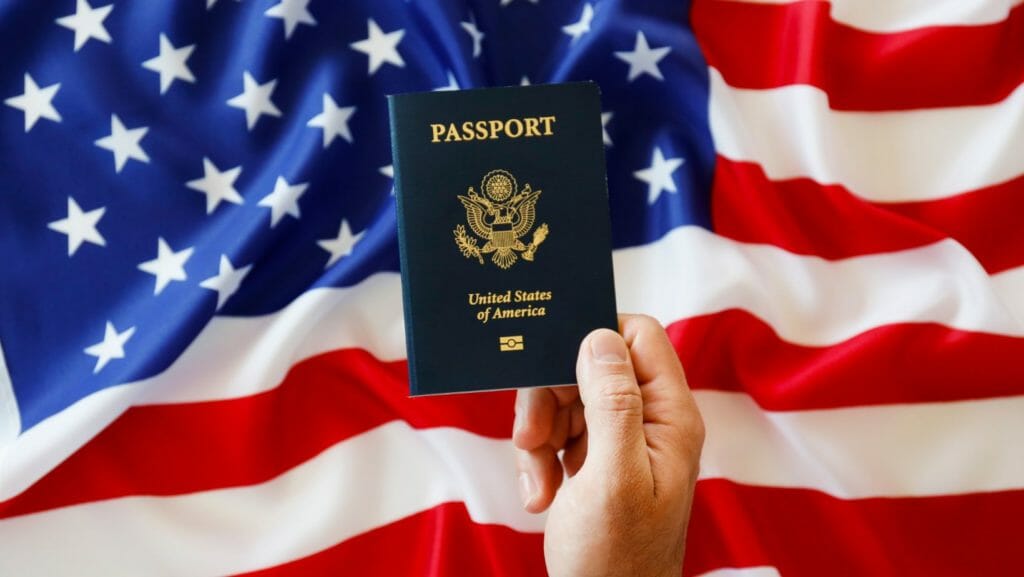Becoming a US citizen is something that many individuals aspire to. It’s true that America isn’t perfect, but it has a lot going for it. You might want to come here for various reasons, but you’ll need to go through a challenging process to make that a reality.
We’ll talk about how you can become a US citizen right now. It’s a complex process but well worth it if you want to eventually call the USA your home.
Why Would You Want to Become a US Citizen?
One reason why people want to become US citizens is that they’re fleeing persecution in their own country. They may belong to a religious or ethnic minority that doesn’t receive fair treatment in their native land. They may decide that resettling in the US makes sense.
You might also become a US citizen if you love someone who lives in the US. Maybe you want to move
here so you can be with them and start a new life with them.
You may love American food, culture, and the ideals for which the country stands. Whatever your reasons, though, you should realize that naturalization requires that you pass two tests, so you should study up for those before you attempt to take them.

Green Cards
You can take a big step toward citizenship by getting a green card. However, a green card holder is not the same thing as a US citizen, so keep in mind.
A green card is regarded as a permanent resident card. If you have one, it allows you to legally work and live in the US. You’re not a US citizen if you have one, though you can always use one as a stepping stone toward getting your citizenship someday.
Green card holders are lawful, permanent US residents. If the cops pull you over, for instance, you can show them your green card to demonstrate that you’re in the country and working here legally. You might get a green card and do all kinds of work here in the states.
Becoming a Naturalized Citizen
If you become a US citizen, that’s the same thing as becoming a naturalized one. Naturalization is a process or legal act. It can happen in a couple of ways.
For instance, you can become a naturalized citizen automatically through a statute. If so, you don’t need to actually do anything. You can also get to this status through a motion or application, whereby legal authorities will bestow the naturalized citizen status upon you.
If you’re a naturalized US citizen, that means you became a US citizen as an adult. By contrast, a citizenship certificate is what you get if you’re born to US parents.

What Rights Do You Get as a Citizen?
If you become a citizen, you get the right to vote. That’s pretty huge for some people, and that reason alone might lead them to seek citizenship versus just retaining a green card.
If you’re a citizen, that also makes it a lot more difficult for any governing body to deport you back to your origin country. As a citizen, you’re safe from deportation, except in very rare circumstances.
That protection might lead you to seek citizenship status versus sticking with a green card. If you’re at all worried about having to go back to your origin country, you might fight hard and do all you can to get that citizenship status. You also have more options for family immigration if you’re a US citizen.
Naturalization Requirements
If you want to start the path toward citizenship, naturalization will probably be on your to-do list. You should understand what the law requires of you if you want that.
You’ll first need to pass a background check. If you’ve lived a clean life, you should have no problems with this part. If you did some questionable things at some point, then hopefully, you can explain you’ve made mistakes, but you’ve cleaned up your act. You should know you’ll need to address your record as the process continues.
You must also attend an interview. At that time, you’ll have to talk about your past, present, and possible future as an American citizen. If you come from a part of the world with known US hostility, you might have to convince the person questioning you that you’re not hostile toward your adopted country.
You must also take two tests. The United States Citizenship test is the first one. The Immigration Services test is the other one.
The English Test
The English test is one of the two tests you must take if citizenship is your eventual goal. If you are not a native English speaker, you may find this first test difficult. English is not the easiest language to learn if you didn’t grow up speaking it, listening to it, and reading it.
You must work to master it, though, or at least to understand enough of it to pass this test. The tester will need to know that you understand English and also that you can speak it at least a little.
You must get ready for a reading test that comes as part of this section. You’ll need to read English sentences and speak them out loud. You also won’t know until you take the test exactly what sentences you must read and speak, so it’s not as though you can memorize them and speak them by rote.
You must also write a sentence correctly. You will have to choose one of three standard sentences. That sounds easy enough for native English speakers, but again, you might not know any English prior to studying for this test.
The USCIS does give you study materials to help you as you get ready to take the test. They will give you vocabulary lists if you ask for them, and you should absolutely look at those to get ready.
Can You Get Out of Taking the Test?
You might wonder whether you can get out of taking the English test if you’re not confident about it. Sometimes, the USCIS will grant you an exception. They might do that for older adults who have lived in the US for quite some time but are not citizens.
You can apply for an exception, and they may grant it in certain instances. You’re always on a more stable path toward citizenship if you can take this test portion and pass it, though.
The Civics Test
The civics test is also vital if you’re going to become a US citizen. During this test, you must talk about why you want to become a US citizen, and you must demonstrate some American history knowledge.
You demonstrate during this section that you understand the government and how it operates, at least in theory. You also need to show that you know about the country’s background. The questions will ask about the country’s founding and some key events that have happened during its time here on the planet.
In 2020, the civics test expanded to 128 questions from the original 100. However, they recently went back to the 100-question format. You must also answer six out of ten additional questions.
Those questions don’t come in a multiple-choice format. Rather, you must answer them based on your own knowledge and the studying you did leading up to this portion.
What Can You Do to Ensure You Pass the Tests?
Passing the tests will challenge you, but you do have one thing on your side. You know what you can expect because the test doesn’t really change. Since the civics test reverted back to the original 100-question format, you can study the precise questions you’ll have to answer along with the English you’ll need to study to pass the language portion.
You can get study materials from the USCIS. However, you can also hire a lawyer who specializes in these cases. They can get someone who speaks your native language to help you if you’re not a native English speaker. They can make sure that you don’t have any questions and that there’s nothing about the test format that confuses you.
You can take as much time as you require to get ready for the test, and you can retake it if you do not pass on the first try. However, you might operate under a time crunch sometimes if you’re facing deportation and you don’t pass and become a citizen. That depends on each person’s unique situation.
If you can become a US citizen, it can make your life a lot better in some instances. In your newly adopted country, you might stay with other family members who are already US citizens. You may marry a US citizen who you already love.
You might also come to like some American ideals that the country tries to attain. America is a work in progress, but you’ll likely enjoy many of the rights and privileges the US affords its citizens.


